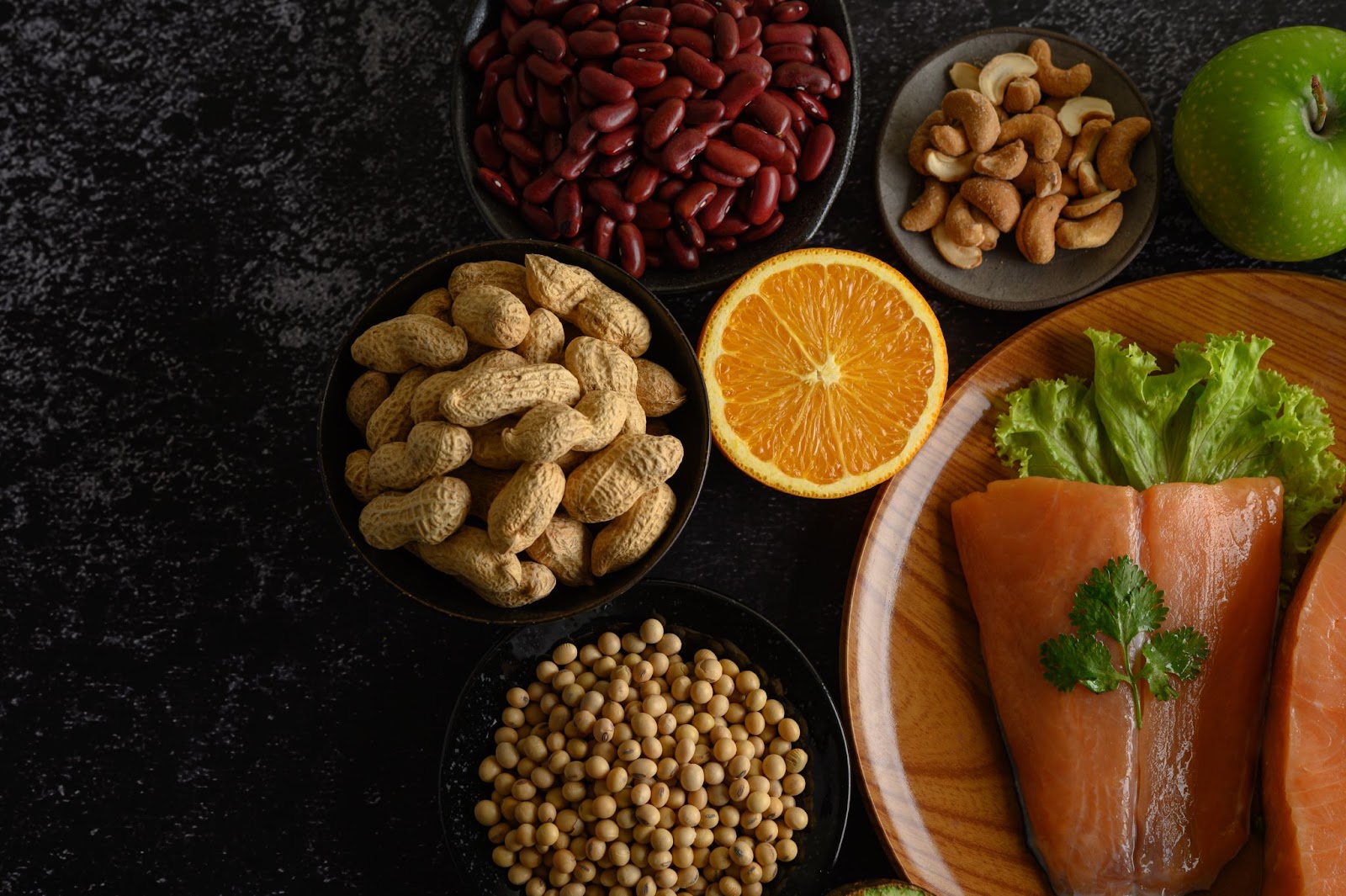Testosterone-Killing Foods: What to Avoid for Healthy Hormones
When it comes to maintaining a healthy lifestyle, many focus on exercise, sleep, and mental well-being. However, one crucial aspect that often gets overlooked is diet. Testosterone-killing foods can have a significant impact on your hormone levels and overall health. Understanding how certain foods can sabotage your testosterone production is essential for those who want to optimize their fitness and maintain healthy hormone levels. In this article, we will explore these foods, how they affect your body, and what you can do to avoid them. We’ll also discuss Testosterone Replacement Therapy as a potential solution for those who find themselves struggling with low testosterone levels.
The Connection Between Diet and Testosterone Levels
Testosterone is a vital hormone for both men and women, although it is primarily associated with male health. It plays a role in muscle growth, fat distribution, bone density, and even mood regulation. A balanced diet can support optimal testosterone levels, but consuming Testosterone-Killing Foods can have the opposite effect. Foods high in processed sugars, unhealthy fats, and chemicals can disrupt the natural production of testosterone.
Many people may not realize that their favorite snacks or regular meals could be contributing to low testosterone levels. While it may be tempting to indulge in junk food or foods rich in artificial ingredients, making these choices regularly can lower your testosterone production. Some studies suggest that certain foods could even lead to hormonal imbalances that result in fatigue, decreased muscle mass, and increased body fat.
Processed Foods and Trans Fats: A Major Offender
One of the worst offenders when it comes to Testosterone-Killing Foods is processed foods. These often contain trans fats, which are artificial fats that can wreak havoc on your hormonal balance. Trans fats are found in baked goods, fast food, and many pre-packaged snacks. They can increase bad cholesterol levels and cause inflammation in the body, which can directly impact testosterone levels.
In addition to harming testosterone production, a diet rich in trans fats can also increase the risk of cardiovascular diseases. Opting for whole foods and healthier fats like those found in avocados, olive oil, and nuts is a much better choice. By avoiding processed foods, you help your body maintain a more natural hormone balance, which is key for your overall health.
Excessive Alcohol Consumption
While moderate alcohol intake is generally considered safe for most people, excessive drinking can be a hidden cause of low testosterone. Alcohol, particularly beer, can have a direct effect on testosterone production. Studies show that alcohol, especially when consumed in large amounts, can reduce testosterone levels by interfering with the liver’s ability to metabolize estrogen and other hormones. This imbalance can lead to a decrease in testosterone.
If you’re looking to maintain healthy testosterone levels, it’s important to monitor your alcohol consumption. A few drinks every once in a while might not cause much damage, but frequent drinking can put your hormone levels at risk. Consider choosing healthier alternatives, such as water or herbal teas, if you want to optimize your health.
Soy and Phytoestrogens: Hormonal Disruptors
Soy products, such as tofu and soy milk, are often considered a healthy alternative to animal-based proteins. However, for individuals concerned about their testosterone levels, soy might not be the best choice. Soy contains phytoestrogens—plant-based compounds that mimic the effects of estrogen in the body. Excessive consumption of soy can increase estrogen levels in both men and women, potentially lowering testosterone production.
While moderate consumption of soy products may not pose a significant risk for most people, consuming large amounts regularly could disrupt the balance of hormones. If you are focused on maintaining healthy testosterone levels, it might be worth limiting your intake of soy-based foods or opting for alternatives that are lower in phytoestrogens.
Refined Carbs and Sugary Drinks: A Hidden Danger
Another group of Testosterone-Killing Foods includes those high in refined carbohydrates and added sugars. These foods can lead to an increase in insulin levels, which, in turn, can lower testosterone production. Research has shown that diets high in sugary drinks, candies, and baked goods can significantly reduce testosterone levels. This is because high sugar intake causes a spike in insulin, which can lead to a hormonal imbalance that affects testosterone.
To protect your testosterone levels, it’s important to reduce your intake of sugary snacks, sodas, and other high-glycemic foods. Instead, focus on whole grains, vegetables, and fruits that provide natural sugars and essential nutrients without the negative effects on hormone balance.
Stress and Cortisol: A Silent Testosterone Killer
It’s not just the foods you eat that can impact testosterone production. Chronic stress can lead to elevated levels of cortisol, a hormone that directly competes with testosterone. When cortisol levels are high, testosterone production tends to decrease. Stress-induced eating habits can further contribute to the issue, as individuals may crave Testosterone-Killing Foods like sweets or fried snacks as a way to cope.
Managing stress is essential for overall health and hormone regulation. Practices like mindfulness, regular exercise, and proper sleep can help keep cortisol levels in check, thus supporting testosterone production. If you’re concerned about your testosterone levels, try incorporating relaxation techniques into your daily routine.
The Role of Testosterone Replacement Therapy
For those who already experience symptoms of low testosterone due to poor diet or other factors, Testosterone Replacement Therapy (TRT) may be an option. TRT involves supplementing the body’s natural testosterone levels through injections, patches, or gels. It can help individuals regain energy, improve muscle mass, and boost overall vitality.
However, it’s important to note that Testosterone Replacement Therapy is not a one-size-fits-all solution. Before considering TRT, it’s crucial to consult with a healthcare professional to determine the best approach for your individual needs. Lifestyle changes, such as a healthier diet and regular exercise, should always be considered as part of the overall strategy to improve testosterone levels.
Making Positive Changes for Better Health
Avoiding Testosterone-Killing Foods is one of the most effective ways to ensure that your testosterone levels stay healthy. By focusing on whole, nutrient-dense foods and cutting back on processed snacks, alcohol, and sugary drinks, you can support your body’s natural hormone production. Additionally, managing stress and considering options like Testosterone Replacement Therapy can further help individuals struggling with low testosterone levels.
FAQ
Q1: Can I reverse low testosterone by changing my diet?
Yes, adopting a healthier diet and avoiding Testosterone-Killing Foods can help restore healthy testosterone levels in many cases. However, severe cases may require medical intervention such as Testosterone Replacement Therapy.
Q2: Are all soy products bad for testosterone levels?
Moderate consumption of soy is unlikely to significantly impact testosterone. However, excessive intake of soy products might contribute to hormonal imbalance due to their phytoestrogen content.
Q3: What are the best foods to boost testosterone?
Foods rich in healthy fats, like avocados, nuts, and olive oil, along with lean proteins and vegetables, can help support testosterone production.
Stay in touch to get more news & updates on Tamasha!






